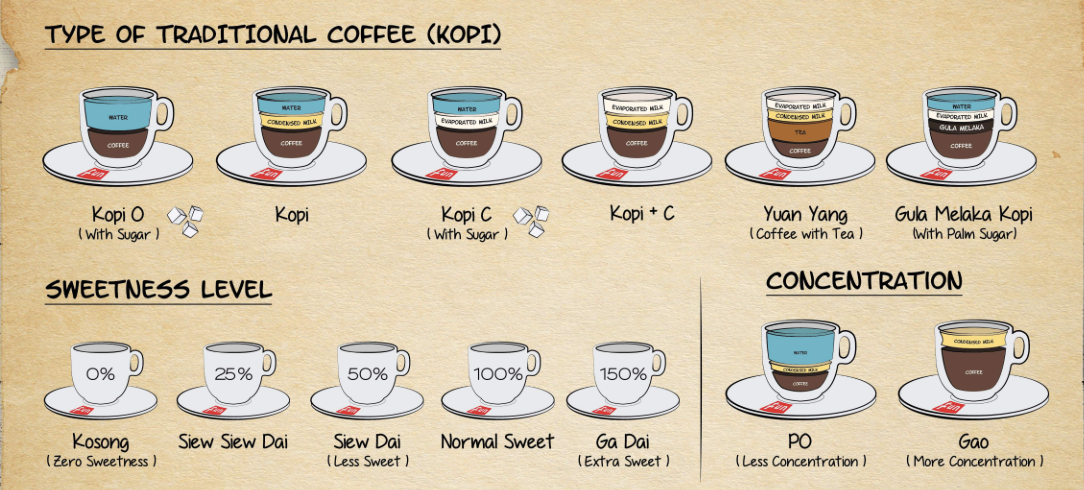
Singlish is a colloquial variety of English that is spoken in Singapore. It is characterised by its unique syntax, grammar, and vocabulary, which have been influenced by Malay, Mandarin, Hokkien, and Tamil. Some common Singlish expressions include "lah," "can," "bo jio," "kiasu," and "shiok." Singlish is often used in informal settings, such as among friends or family, and is sometimes considered controversial as some people believe it undermines the use of Standard English. Despite this, Singlish continues to be a significant part of Singapore's cultural identity and is embraced by many Singaporeans as a way to express their identity and sense of belonging.
1. Top commonly used Singaporean colloquial terms and expressions:
"Lah" - This is a versatile and widely used word that can be used to emphasise or soften a statement.
For example, "Don't be so stubborn, lah" or "Okay, lah, let's go."
"Bo jio" - This is a phrase used to express disappointment in not being invited to an event or gathering.
For example, "Why you bo jio me ah?" meaning "Why didn't you invite me?"
"Can" - This is a word used to indicate agreement or permission.
For example, "Can I borrow your pen?" or "Can lah, let's do it."
"Makan" - This is a Malay word that means "to eat" and is widely used in Singapore to refer to food or a meal.
For example, "Let's go makan at that hawker center."
"Sabo" - This is a term used to describe someone who is trying to sabotage or prank another person.
For example, "Don't sabo me, okay?"
"Blur" - This is a term used to describe someone who is confused or unaware of something. For example, "Why are you so blur? I already explained it to you."
"Steady" - This is a word used to indicate that something is good or reliable.
For example, "This restaurant is quite steady, the food is always good."
"Chope" - This is a term used to reserve or save a seat or spot.
For example, "I'm going to chope this seat for us."
"Shiok" - This is a term used to describe something that is pleasurable or enjoyable.
For example, "This massage is so shiok, I feel so relaxed."
2. Ordering drinks

Singaporean expressions you can use when ordering drinks:

"Kopi" - This is a traditional coffee made with sweetened condensed milk. You can order it by saying "Kopi," followed by how you want it prepared, such as "Kopi C" (with evaporated milk and sugar) or "Kopi O" (black coffee with sugar).
"Teh" - This is tea with condensed milk and sugar. You can order it by saying "Teh," followed by how you want it prepared, such as "Teh C" (with evaporated milk and sugar) or "Teh O" (tea with sugar, no milk).
"Milo" - This is a chocolate malt drink. You can order it by saying "Milo," followed by how you want it prepared, such as "Milo Dinosaur" (with extra Milo powder) or "Milo Peng" (with ice).
"Bandung" - This is a rose syrup drink with evaporated milk. You can order it by saying "Bandung," followed by how you want it prepared, such as "Bandung C" (with condensed milk) or "Bandung Peng" (with ice).
"Lime juice" - This is a refreshing drink made with freshly squeezed lime juice and sugar. You can order it by saying "Lime juice," followed by how you want it prepared, such as "Lime juice O" (without ice) or "Lime juice Peng" (with ice).
"Teh Tarik" - This is a tea made by "pulling" or stretching the tea and condensed milk mixture to create a frothy top. You can order it by saying "Teh Tarik," followed by how you want it prepared, such as "Teh Tarik C" (with evaporated milk and sugar) or "Teh Tarik O" (without milk).
"Barley" - This is a drink made from barley grains, often mixed with sugar and lemon juice. You can order it by saying "Barley," followed by how you want it prepared, such as "Barley Peng" (with ice).
3. "Chope-ing" Tables and chairs

It is common to "chope" or reserve a table at a hawker center or food court by placing a tissue packet or a small item like a book or umbrella on the table. This signals to others that the table is already taken and should not be used by others.
If you want to chope a table, you can simply place a tissue packet or small item on the table and leave it there while you go and order your food. It's important to note that you should not leave your belongings unattended for an extended period of time, as it is considered impolite and may cause others to become frustrated or annoyed.
If you see a table that has been "chope-ed", it's best to respect the reservation and find another available table. However, if the table has been left unattended for an extended period of time, it may be considered "fair game" for others to use. In any case, it's always best to be courteous and considerate of others when dining in public places.